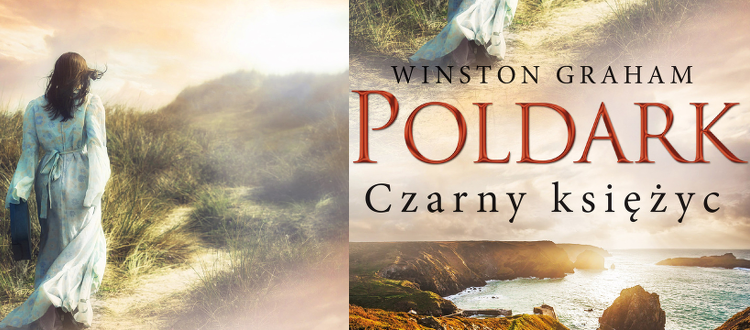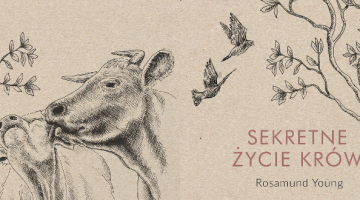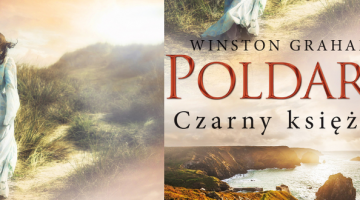There is a type of bookworm who is constantly searching for titles that are prematurely forgotten, unrecognized, or victims of some particular interpretation, preventing them from reaching out to a broader group of readers. I do not consider myself to be an absolute example of this type of aficionado of literature, and about the novel The Black Moon by Winston Graham (part V of the Poldark Saga) can be said everything but that it gathers dust on a bookshelf. Yet the information (encountered on an English blog) that the Poldark Saga as a whole is an extremely multidimensional work, and at the same time ignored by scientists, primarily because we are dealing with a historical romance, prompted me to vent my first encounter with the Poldark and the Warleggan families.
Cornwall. 1794. The eclipse of the sun, accompanying the birth of the son of Elizabeth Warleggan seems to announce the winding paths of fate foreseen not only for him but also for the other heroes of The Black Moon. Through the gate leading to the estate of the Warleggans new characters pass, including little master Goeffrey’s governess. In the meantime, a bit of apparent calm appears in the Poldarks, at least in the case of male-female relationships. But there are dark clouds here as well, and the case in which Ross Poldark becomes entangled sets fire to the conflict between the Anglican Church and Methodists. And also love explodes – the problem is that the young man who falls in love with Geoffrey’s governess is related to Ross, and every entry of the Warleggans into the Poldarks’ paths and conversely announces trouble. Difficult feelings, indifferent to the rivalries of the families, are born in the wake of the news of the developing war in France, the increasing poverty and suffering of the people of Cornwall.
One can write that The Black Moon is simply a story of complicated family dramas, wounded souls or unfulfilled ambitions, against the background of a revolutionary 18th century Europe. The catchwords such as: difficult loves in difficult times, lost dreams, or responsibility for one’s choices correspond to the content of The Black Moon, although they do not distinguish this work from other representatives of its genre. One may also use the description suggested by the publisher: „When Morwenna Chynoweth, the governess of Elizabeth’s son from her first marriage, falls in love with Drake Carnie, Demel’s brother, there is a new flare point, and the rivalry and hostility between Ross and George explode with new force, gaining additional sharpness”. But in summaries fitting the way what is commonly called historical romance is advertised, there will be something more if we want to read The Black Moon without unnecessary prejudice. There it will be obvious that Winston Graham was interested in the issue of civic freedom, the status and role of women in society, the institution of marriage, and the way women perceived their bodies. The writer is very sensitive to the issues of language, showing what different meanings words such as freedom, choice, law or tyranny have, depending on whether they are pronounced by a woman or a man. It reminds us that „the story of a certain love affair” sometimes tells us about past years and their return in our everyday life more than we ever will be eager to admit.
Joanna Roś








